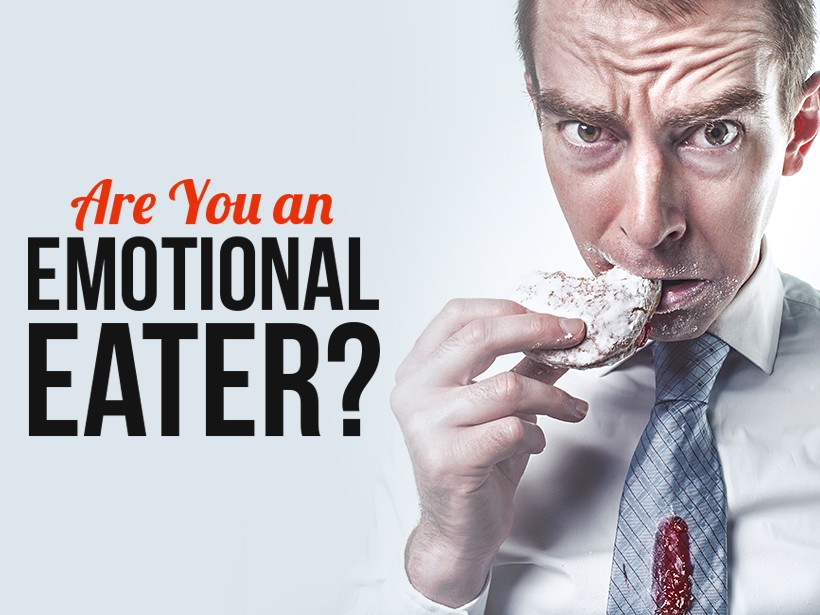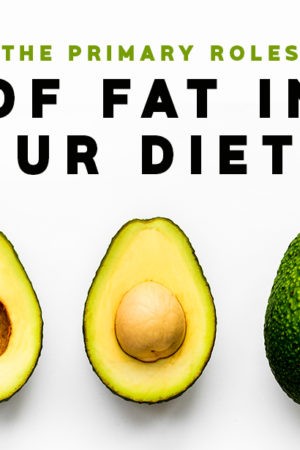Everyone loves to eat. For us humans, eating isn't just something that we do to stay alive; cooking and eating good food is a hobby, an achievement, and often, a celebration. However, as obesity rates rise across the United States, many dieters are finding themselves struggling to make smarter choices when it comes to what to chew. One of the reasons for this is the rise in prevalence of “emotional eaters.” An emotional eater is someone who has an unhealthy relationship with food; they often eat not to nurture their body, but instead to relieve themselves of a negative emotion. Emotional eaters often find themselves unable to lose weight because they have a compulsion to binge on their snack of choice whenever life deals them a bad hand.
Are you an emotional eater? Many people do not even realize that they have a problem with food psychology. The following are three of the most common symptoms that may signify that you are an emotional eater.
You crave sweets when you're upset
Have you noticed that you have more trouble resisting the temptation of chocolate when you fail a test or your coworker gets snippy with you? Studies have shown that sweet treats have an instant mood-boosting effect, which causes emotional eaters to crave them when they feel sad or upset.1
The next time you are feeling a strong craving for something sweet, think about the context of your emotions. Will you be happy having a single square of chocolate because you want to taste it? Or do you want to eat the entire bar because you're feeling blue? If the underlying reason for your craving isn't the taste of the food, try doing a quick 10 minutes of exercise, which has been shown to release the same feel-good chemicals as a sugary pick me up.2
You binge on foods that have emotional significance
When you visit your grandma's house, do you find yourself eating more plates of home-style mac and cheese than you would at home? Do you find the glow of McDonald's golden arches simply irresistible? Many emotional eaters experience a sort of “food FOMO” (fear of missing out, for the non-millenial readers) in which they overeat foods that connect them with a happier time in their lives in an effort to bring themselves back to a simpler world.
If this describes your situation, try to indulge in non-food related comforts when you're feeling nostalgic. Calling up a childhood friend for coffee or flipping through a family photo album can give you the same warm fuzzies as eating mom's famous meatloaf– with none of the calories.
You eat when you're bored
Emotional eating doesn't always happen when you're sad or longing for the past! Some people simply search for excitement in their food, and they have a tendency to mindlessly eat to give their body something to do.
Have you noticed that you often munch on unhealthy snacks during your days off? The next time you think that you might be eating to deal with boredom, treat yourself to a healthy snack like an apple or celery with peanut butter. If a healthy alternative doesn't seem appealing, chances are that you're not hungry– you're bored. Picking up an old pastime or hobby can help you curb your cravings.
NUTRITIONAL DISCLAIMER
The content on this website should not be taken as medical advice and you should ALWAYS consult with your doctor before starting any diet or exercise program. We provide nutritional data for our recipes as a courtesy to our readers. We use Total Keto Diet app software to calculate the nutrition and we remove fiber and sugar alcohols, like erythritol, from the total carbohydrate count to get to the net carb count, as they do not affect your blood glucose levels. You should independently calculate nutritional information on your own and not rely on our data. The website or content herein is not intended to cure, prevent, diagnose or treat any disease. This website shall not be liable for adverse reactions or any other outcome resulting from the use of recipes or recommendations on the Website or actions you take as a result. Any action you take is strictly at your own risk.
- What Are Net Carbs? - April 29, 2020
- The Most Comprehensive Keto Alcohol Guide - April 28, 2020
- How to Measure Body Fat Percentage - April 26, 2020































